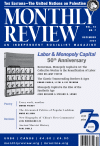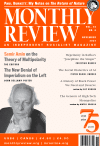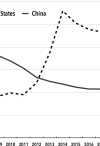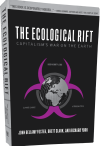
The Extreme Court
A new poem by Marge Piercy. | more…

A new poem by Marge Piercy. | more…

As the atrocities visited by Israel upon the Palestinian people continue to multiply, this month’s “Notes from the Editors is a forceful condemnation of not only the Zionist entity, but the entire U.S.-led neoliberal world order. Israel’s relentless pursuit of genocide in Palestine “has destroyed any pretense of a commitment to universal human rights on the part of the West,” undeniably revealing “imperialism and settler colonialism in their most brutal forms” as the entire world watches. | more…

John Bellamy Foster returns to his impactful Marx’s Ecology (Monthly Review Press, 2000), for this new introduction for the recent German translation of the book (Marx’ Ökologie, Edition Assemblage, 2024). “There is no longer any question,” he concludes, “about the depth of Marx’s metabolic critique…or its centrality in terms of the philosophy of praxis in our day.” | more…

Joel Wendland-Liu reviews Li Dazhao: China’s First Communist, by Patrick Fuliang Shan (SUNY Press, 2024). This first-ever English-language biography of Li, a founding member of the Communist Party of China, Wendland-Liu writes, contains not only new scholarship but a fresh approach to the life of this revolutionary figure. | more…

In this review of Andrew Drummond’s The Dreadful History and Judgement of God on Thomas Müntzer (Verso Books, 2024), Paul Buhle explores how the influence of this Christian priest reverberated throughout the centuries, inspiring generations of future revolutionaries—including Karl Marx himself. | more…

Monthly Review editors elucidate Samir Amin’s concept of “delinking” in the context of the rise of global multipolarity. Delinking, they write, does not aim to isolate individual nations and populations economically, “but rather finding a way to sever connections with the main mechanisms of imperial dominance.” | more…

John Bellamy Foster returns to the touchstones of anti-imperialist Marxist thought, found in the works of V. I. Lenin, Samir Amin, and others, in order to confront the rising denial of imperialism on the left. This worldview and its consequences, he writes, has troubling implications not only for the superexploited workers of the periphery, but for all of the workers of the world, and for the internationalist character of contemporary Marxism. | more…

In August 2020, ecosocialist thinker, MR author, and jazz musician Paul Burkett wrote to MR editor John Bellamy Foster about the latter’s recent book, The Return of Nature (Monthly Review Press, 2020). Burkett’s short correspondence revealed his deep understanding of the throughline tying the ecologically inspired thought of Marx and Engels to the later innovations of Roy Bhaskar, Richard Levins, Richard Lewontin, and others, all the way up to Foster’s own work demonstrating that these developments are not isolated, but part of an evolving ecosocialist tradition. | more…

Shakespeare’s Richard III famously immortalized the eponymous king as a scoundrel and tyrant, thirsty for power and blood. Using economic data spanning centuries, Thomas Lambert questions the truth of this spurious reputation: Was Richard III indeed a murderous despot bent on absolute rule? Or a myth propagated by Tudor allies aiming to ingratiate themselves to the new dynasty? | more…

Minqi Li and Lingyi Wei look to the Chinese and U.S. economies to illustrate the contradictions of secular stagnation, concluding that both economies will likely face great challenges in the decades to come. However, they write, progressive economic policies could change China’s future, encouraging massive investment into the state sector and bringing about the transition to a fully socialist society. | more…

Steve Ellner deconstructs the argument that Pink Tide governments elected since 2018 are in a state of “passive revolution,” having betrayed their progressive roots through concessions to conservative elements and capital. This analysis, Ellner finds, fails to capture the material impacts of Pink Tide governments, their strategic importance, or their potential to pull societies toward a more radical leftist future. | more…

In an interview with Brazilian magazine Margem Esquerda, John Bellamy Foster shares with Fabio Querido, Maria Orlanda Pinassi, and Michael Löwy the formative experiences that contributed to his work as a young activist and, later, a preeminent scholar of ecological Marxism. The interview concludes with a message to the ecological left in Brazil and elsewhere: “Whatever solutions there are to the present planetary crisis must, in historical-materialist terms, arise from concrete social formations, on the basis of which the new revolutionary transformations will take place.” | more…
Notifications